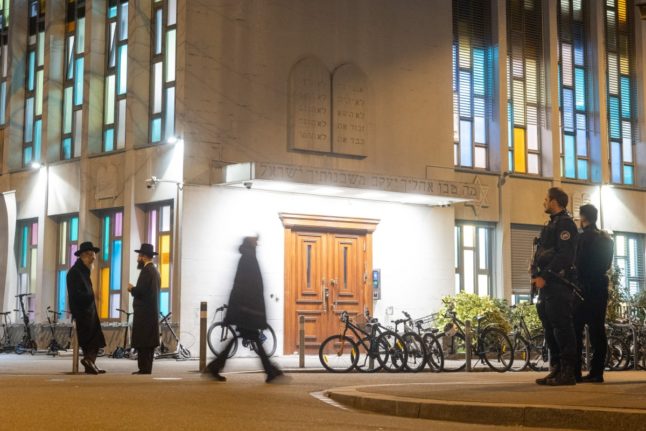The 50-year old victim, who is a member of Zurich’s Orthodox Jewish community, is reportedly out of danger, but still remains in the intensive care unit.
While the exact circumstances of the stabbing are not yet known, a 15-year-old alleged perpetrator was arrested at the scene.
A ‘radicalised’ teen
According to Swiss media reports, the 15-year-old suspect is a naturalised Swiss citizen “with Tunisian roots, who became radicalised in that country.”
The media also reports that a video of the alleged assailant has surfaced on an American platform, SITE Intelligence Group, which has been monitoring online forums for terrorist and extremist threats.
The victim’s family reportedly identified the photo on that site as that of the assailant.
According to Blick newspaper, which has viewed the video, “the teenager calls himself Ahmed al-Dabbah and swears loyalty to the terrorist organisation IS [Islamic State]. He goes on to say that he wanted to ‘attack a synagogue and try to kill as many Jews as possible.’ Then he wanted to take to the streets and try to ‘slaughter all the unbelievers out there.+
These reports have so far not been confirmed by Zurich police.
Beefed-up security
After Saturday’s attack, authorities increased security around the institutions that “have a Jewish connection as precautionary measure,” Zurich police announced.
Various groups in Switzerland have swiftly condemned the attack.
The GRA Foundation, which is working against racism and anti-Semitism, said that Saturday’s “hate crime” was not an isolated incident “but clearly part of a pattern linked to the tensions over Israel’s war against Hamas in Gaza.”
“Since the escalation in the Middle East, anti-Semitic incidents in Switzerland have skyrocketed,” it added.
One of the recent widely reported ones occurred in the ski resort of Davos in February, where a shop refused to rent sleds and other equipment to Jewish customers.
READ ALSO: Swiss police probe anti-Semitic ‘discrimination’ at Davos ski station
Anti-Semitism has no place in Switzerland
Swiss President Viola Amherd voiced alarm Monday at the stabbing over the weekend of an Orthodox Jewish man, insisting
that “anti-Semitism has no place in Switzerland”.
“The knife attack in Zurich shocked me,” she wrote on X, adding that her thoughts were with the victim and all Jewish citizens in the country.
Anti-Semitism on the rise around Europe
Anti-Semitic and anti-Muslim hate crimes have been on the rise in many countries since Hamas militants from Gaza carried out an unprecedented attack inside Israel on October 7th.
That attack resulted in the deaths of about 1,160 people, mostly civilians, according to an AFP tally of official figures. It also saw the militants abduct 250 hostages, of whom 130 remain in captivity, including 31 presumed dead, according to Israel.
Israel’s retaliatory offensive against the Palestinian territory has killed more than 30,500 people, mostly women and children, according to the health ministry in Hamas-run Gaza.



 Please whitelist us to continue reading.
Please whitelist us to continue reading.
Member comments